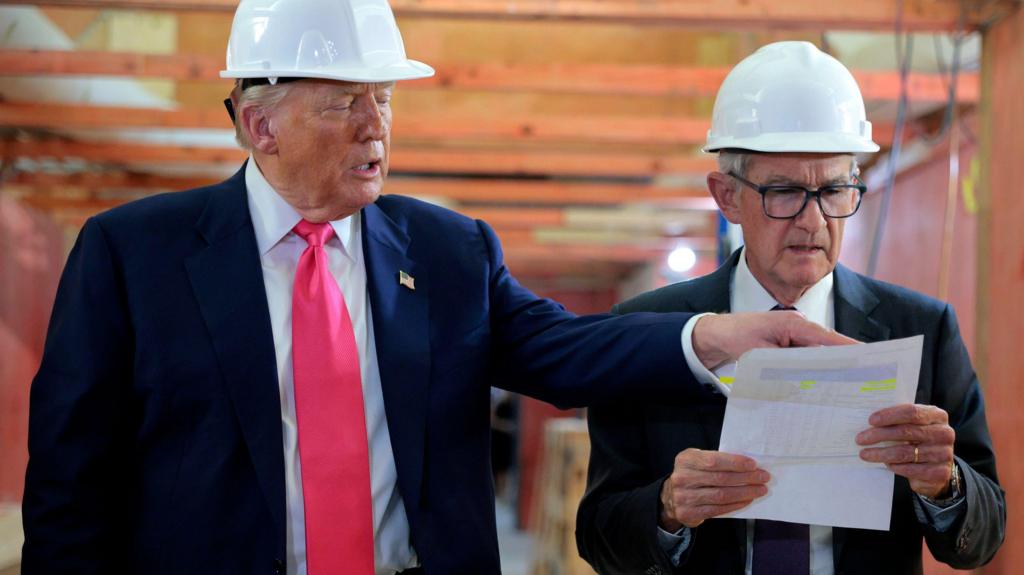Donald Trump has stated his intention to remove Federal Reserve Governor Lisa Cook from her position.
Governor Cook, however, has indicated her refusal to comply and is reportedly considering legal recourse.
The ramifications of this dispute remain uncertain, with the possibility of it escalating to the US Supreme Court.
The situation is highly unusual and raises significant concerns regarding the autonomy of the United States’ central bank.
For months, the US President has exerted pressure on the Federal Reserve to lower interest rates, aiming to stimulate economic growth and reduce government borrowing costs.
He has repeatedly criticized Fed Chair Jay Powell, employing terms such as “too late” and “numbskull.”
While presidential disagreements with the Fed are not unprecedented, dating back decades – as exemplified by President Lyndon Johnson’s confrontation with his Fed chair – the current situation presents a novel dimension.
Trump’s objective extends beyond criticizing Powell; he seeks to reshape the entire Fed board with individuals aligned with his political views, a prospect that has alarmed economists and investors.
The Federal Reserve, established in 1913, has operated with two primary objectives since the late 1970s: maintaining price stability and promoting maximum employment.
Its independence is crucial, enabling it to adjust interest rates without requiring approval from Congress or the President, even when such actions may be politically unpopular.
Economist Claudia Sahm emphasizes that the Fed’s independence is designed for moments when political leaders pursue policies, like higher tariffs, that could impede growth and fuel inflation.
Allowing political considerations to dictate monetary policy carries inherent risks.
While interest rate cuts might provide a short-term economic boost, they can lead to long-term consequences such as rising inflation, market instability, and increased borrowing costs.
In 2010, then-Fed Chair Ben Bernanke cautioned that political interference could trigger damaging “boom and bust” cycles and complicate inflation control.
The issue extends beyond domestic concerns.
Global investors rely on the Fed and US Treasury bonds as a secure financial haven.
Erosion of confidence in the Fed’s credibility could lead to increased borrowing costs for the US government, with global repercussions due to their role in asset pricing.
Presently, financial markets appear to be absorbing Trump’s latest threats without significant disruption.
However, this stability could be fragile.
The Fed’s operational independence has historically been a cornerstone of US economic stability.
The prevailing concern is that this norm, like many others, may be vulnerable to disruption.
Paul Thwaite, chief executive of NatWest, says sectors like technology and tourism are showing signs of improvement.
Make It Happen brings Brian Cox to the Edinburgh International Festival as the ghost of Adam Smith.
People in the UK get up to £85,000 per account if their bank collapses.
The traders decision to appeal comes after the victory of two other traders in the Supreme Court
Carlo Palombo and Tom Hayes have secured victory after a 10-year fight but what are the next steps for the former traders?

